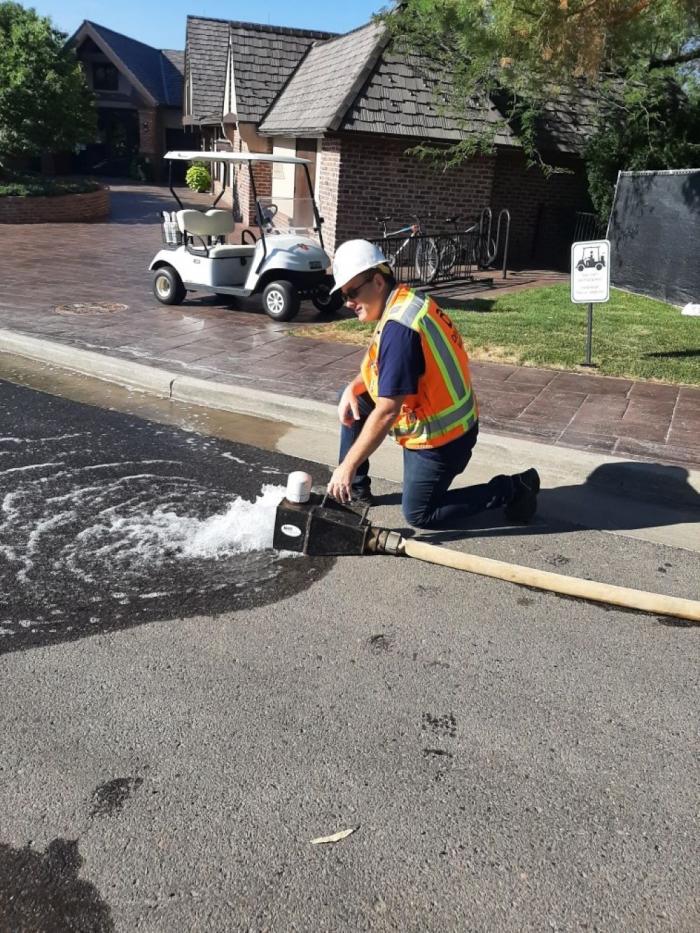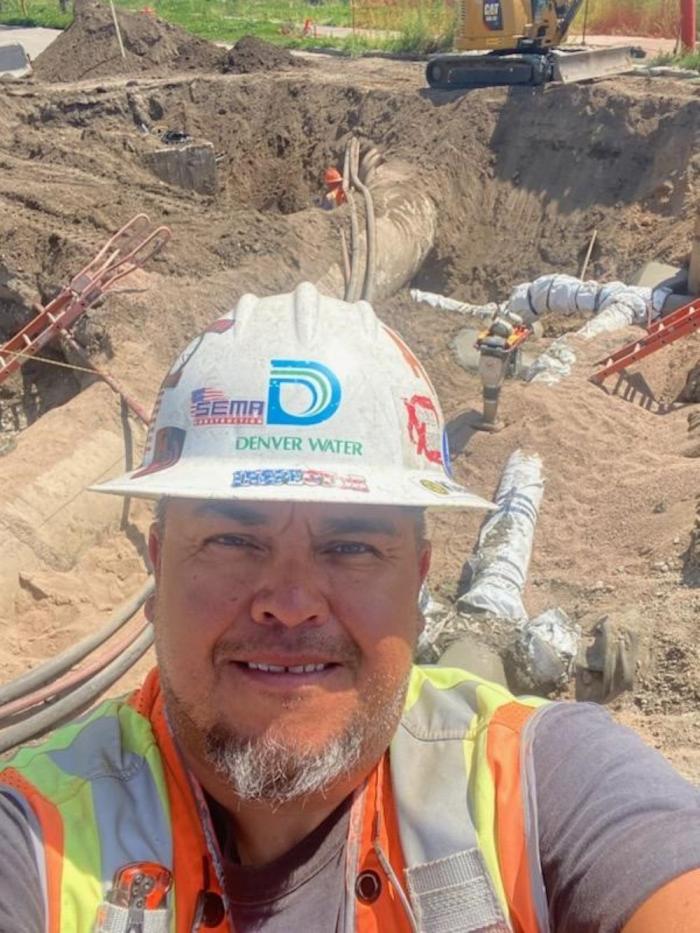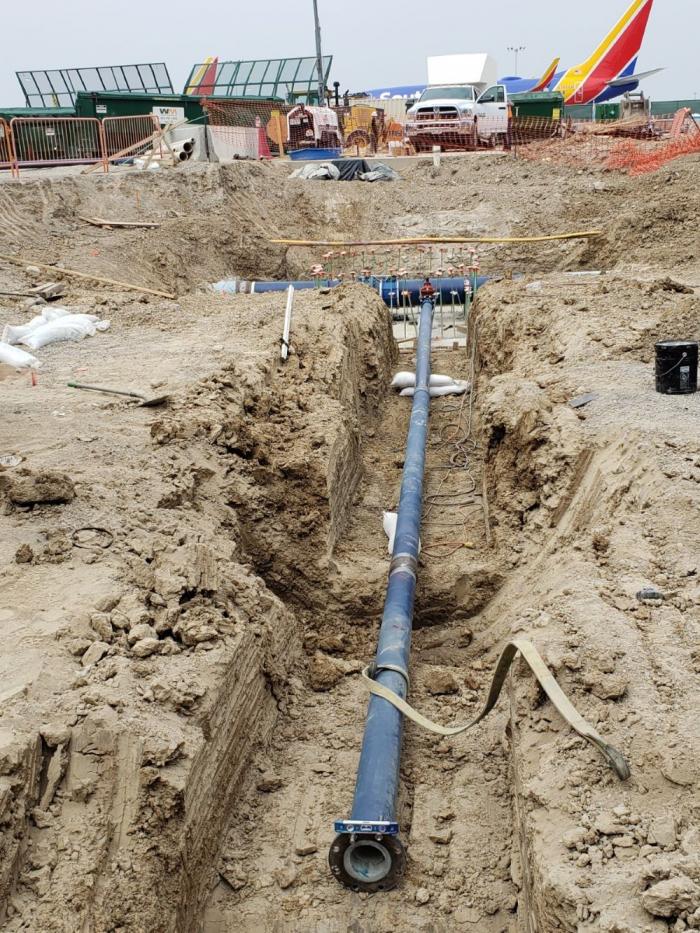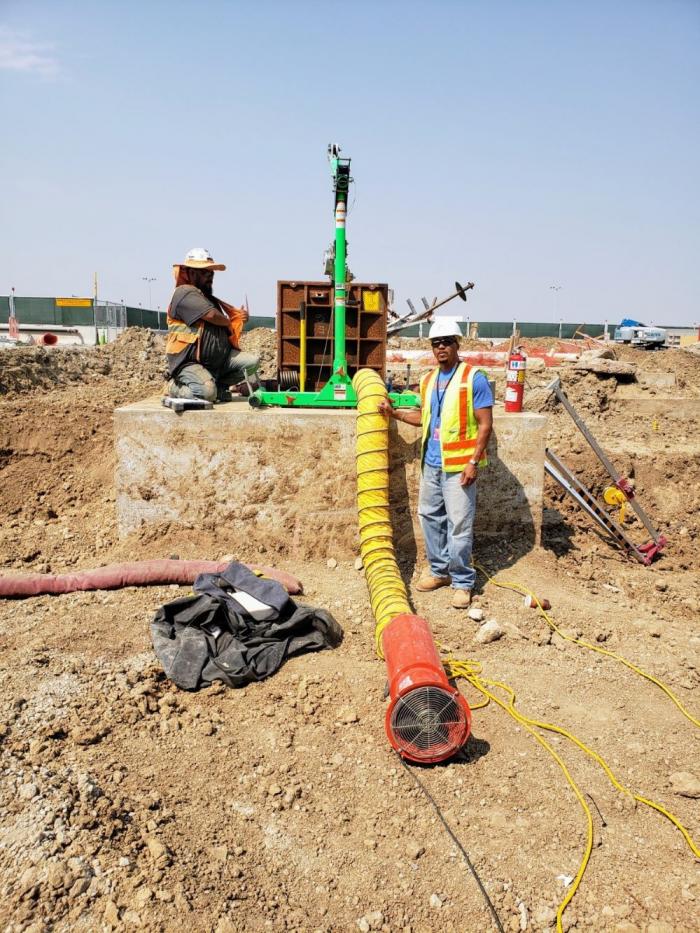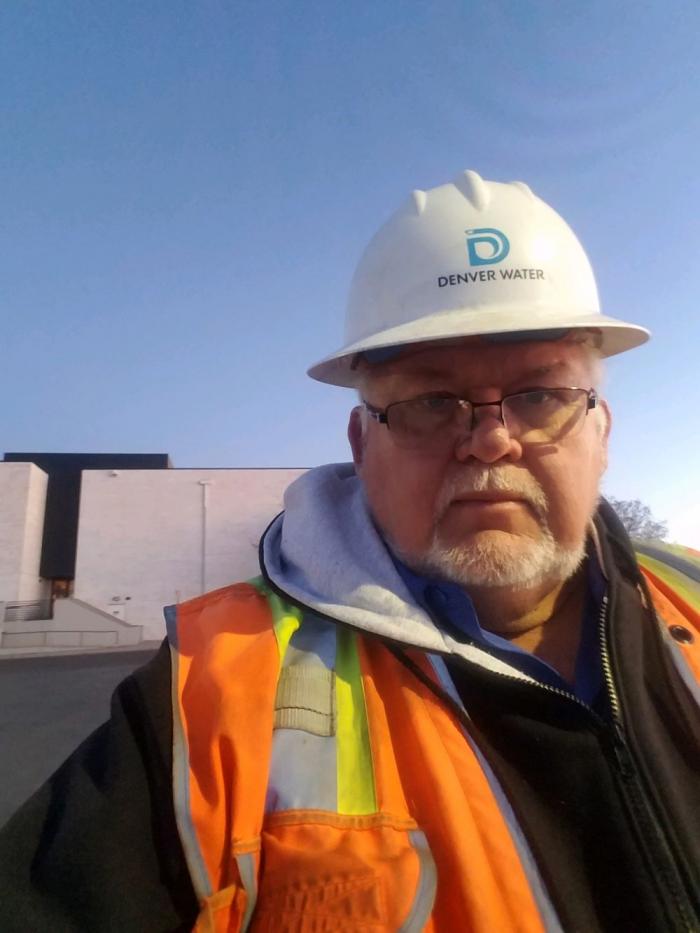Inspectors keep pace with building boom
There’s another skyscraper stacking up in downtown, Denver International Airport is adding more gates, and a slew of houses are popping up all over the metro area.
As growth continues to swell the Mile High City, developers connect those new projects to Denver Water’s system. And quietly, humbly, a crew of nine inspectors is making sure all those new pipes are installed correctly, safely, accordingly.
“We’re the go-between for Denver Water’s water supply and the customers we serve,” said distribution inspector Andrew George. “It’s important that everything is installed to our standards, that everything is safe for our customers.”
Denver Water gained 100,000 customers in the past five years and is now delivering water to 1.5 million people in the metro area. As developers add water lines to serve new projects — including apartments, subdivisions and offices — Denver Water’s distribution inspectors keep a close eye on the work.
They make sure everything the developer installs, generally pipes 3 inches to 20 inches in diameter, meets Denver Water’s engineering specifications. They create detailed notes and maps of the new pipes, watch for water quality issues and ensure the final link between the distribution system and customer is in place without a hitch.
“A lot of stuff we do is not what’s on paper, they’re field changes,” said inspector Jerry Gonzales, adding that it’s up to the inspectors to work with engineers and contractors to fix the problems.
He looked across the north end of the National Western Center redevelopment site, pointing to various underground surprises crews found once they started digging.
“This has all changed. There’s fiber under there. That guy is standing on a big stormwater line that got in the way. There are multiple lines of interference that don’t allow you to do what the plan calls out,” he said. “And the first thing the contractors do is come to you and say, ‘What do you want us to do?’”
Read more stories about Denver Water employees and their passions both on and off the clock.
Lou Vullo, a lifelong Denver resident and 30-year Denver Water employee, leads the group of inspectors. He’s seen his fair share of growth over the years.
“We roll with how development rolls,” he said. “The more development, the busier we are. And we’re slammed right now.”
When Vullo began as a distribution inspector, he’d bring his measuring wheel, pad of paper, 200-foot map, pager and a manila interoffice-mail envelope.
Technology has changed all that. Laptops, GPS and digital project trackers help crews make complete records that are cleaner, neater and more accessible.
Without these inspectors, Denver Water stands the chance of inheriting problems with underground water lines, as well as messy or incomplete records.
“I pride myself in making sure that in 2060 someone can open my notes and know that’s what’s actually in the ground,” Gonzales said.
Most of the inspectors cut their teeth in Denver Water’s Transmission and Distribution group, learning all about laying pipe, disinfecting pipe, cutting off water service and connecting fire lines.
Now, many inspectors juggle 20 or 25 construction projects at a time, often working nights, weekends and holidays and through all sorts of weather.
“It’s never Monday through Friday at a set time. We’ll come in at 4 a.m. on a Monday, work 16 hours, and you’re back at it the next day.” Gonzales said. “There are so many businesses and restaurants where we can’t shut down water service during regular hours.”
Ray Batts works as the sole distribution inspector at Denver International Airport, which is undergoing a major $2 billion expansion that includes adding 39 gates and remodeling the concourses.
“Each gate needs a hydrant, they need a water supply to each restaurant, a domestic line, fire supply — we’ve never had distribution inspectors out there full time like this before,” Batts said.
The inspectors schedule water outages and water quality tests, survey new lines and document everything. They also inspect all interagency projects that affect existing water lines.
“I take pride in being able to be trusted, set my schedule, do my job and not be committed to one spot every day,” said inspector Randy Duffy. “There are always different situations to deal with every day.”
The inspection crew is a close group of co-workers, able to lean on each other during emergencies and joke together during virtual meetings.
“We’re like a family. If someone is going on vacation, they cover projects among each other. If someone is ill, they’re willing to jump in, saying ‘I’ll help you cover this or cover that,’” Vullo said. “We’re so lucky. Every time I think about getting closer to the end of my career, I get emotional thinking about leaving them.”


